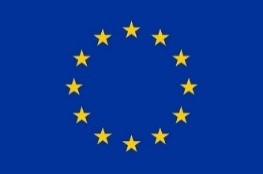Received:
2021-02-15 | Accepted:
2021-04-18 | Published:
2021-06-30
Title
Conditions influencing the change of defense budgets - the case of Lithuania
Abstract
During the so-called Cold War the financing of the defense budget was widely discussed. The issue of financing the defense budget was widely discussed during the arms race. Since the end of the Cold War, armed conflicts have become more complex, and their causes are even more diverse than during the Cold War. They were caused by the deterioration of inter-ethnic divisions, hybrid and cyber wars over energy resources and the activities of terrorist groups. Due to the changing security dimension, a new study was conducted examining the determinants of defense spending in a changing security environment: the creation of new islands in the South China Sea to expand China's military-political power in the region; the possibility of using North Korea's nuclear energy. weapons, Russia's military maneuver in the conflict in Ukraine, its naval operation in the Black Sea, the occupation of Crimea, military operations in Syria, a change in U.S. military doctrine. The state that has spent the most military spending is returning to the creation of large military units, and to do so, the country needs to increase defense spending. Looking at how these world events work, we see one component that connects them. Strong force, expressed in military action, is used to achieve their political goals. Military power is gaining more and more influence in the formation of foreign policy, therefore the defense budget, as an instrument of foreign policy expressed in military power, is becoming an increasingly relevant object of research. Lithuania's defense budget is not as important to world politics as the United States, China or other major countries in the world, but it is relevant and significant in its region. Expenditures on the Lithuanian military budget began to increase significantly by two thousand and fourteen. It can be argued that the factor that has now influenced cost growth is Russia's military aggression in Ukraine. Nevertheless, in 2008 Russia's aggression in Georgia did not affect the growth of Lithuania's defense budget. 2008 The economic crisis may have influenced Lithuania's decision not to increase military spending. Some pressure on the country's defense budget is also related to the 2020 Pandemic crisis. The question arises as to why seemingly similar conflicts affect Lithuanian political decisions differently.
Keywords
North Atlantic Treaty Organization (NATO), defence spending, sustainability, security, financial management
JEL classifications
H60
, H56
, G10
, E26
URI
http://jssidoi.org/ird/article/72
DOI
HAL
Pages
282-288
Funding
This is an open access issue and all published articles are licensed under a
Creative Commons Attribution 4.0 International License
Authors
General Jonas Žemaitis Military Academy of Lithuania, Vilnius, Lithuania
http://www.lka.lt
Journal title
Insights into Regional Development
Volume
3
Number
2
Issue date
June 2021
Issue DOI
ISSN
ISSN 2345-0282 (online)
Publisher
VšĮ Entrepreneurship and Sustainability Center, Vilnius, Lithuania
Cited

Article views & downloads
HTML views: 1529 | PDF downloads: 811
References
Becker, J., & Malesky, E. (2017). The continent or the “grand large” strategic culture and operational burden-sharing in the North Atlantic Treaty Organization. International studies quarterly, 61(1), 163-180. http://doi.org/10.1093/isq/sqw039
Search via ReFindit
Blum, J., & Potrafke, N. (2019). Does a Change of Government Influence Compliance with International Agreements? Empirical Evidence for the North Atlantic Treaty Organization Two Percent Target. Defence and Peace Economics, 1-19. https://doi.org/10.1080/10242694.2019.1575141
Search via ReFindit
Bove, V., Efthyvoulou, G., & Navas, A. (2017). Political cycles in public expenditure: Butter vs guns. Journal of Comparative Economics, 45(3), 582-604. https://doi.org/10.1016/j.jce.2016.03.004
Search via ReFindit
Caruso R., & Di Domizio, M. (2017) Military spending and budget deficits: the impact of US military spending on public debt in Europe (1988–2013), Defence and Peace Economics, 28(5), 534-549. http://doi.org/10.1080/10242694.2016.1228259
Search via ReFindit
Dubauskas G. (2013). Theories of Economics and Finance, Vilnius. [Access through internet]: http://www.lka.lt/lt/moksline-veikla/leidiniai/leidiniu.../ekonomika.html
Search via ReFindit
George, J., & Sandler, T. (2016). Military expenditure trends for 1960–2014 and what they reveal. Global Policy, 7(2), 174-184. https://doi.org/10.1111/1758-5899.12328
Search via ReFindit
George, J., & Sandler, T. (2018). Demand for military spending in North Atlantic Treaty Organization, 1968–2015: A spatial panel approach. European Journal of Political Economy, 53, 222-236. http://doi.org/10.1016/j.ejpoleco.2017.09.002
Search via ReFindit
Hyde-Price, A. (2006). “Normative Power” Europe: a Realist Critique. Journal of European public policy, 13(2), 217-234. https://doi.org/10.1080/13501760500451634
Search via ReFindit
Jokubauskas, V. (2015). Atkurtosios Lietuvos Respublikos kariuomenės pajėgumai: finansavimas, personalas ir ginkluotė (Capacities of the Restored Armed Forces of the Republic of Lithuania: financing, personnel and armaments). Lietuvos metinė strateginė apžvalga, 13, 139-171.
Search via ReFindit
Murdoch, J. C., & Sandler, T. (1984). Complementarity, free riding, and the military expenditures of North Atlantic Treaty Organization allies. Journal of public economics, 25(1-2), 83-101. https://doi.org/10.1016/0047-2727(84)90045-8
Search via ReFindit
North Atlantic Treaty Organization (2019), Defence Expenditure of North Atlantic Treaty Organization Countries (2011-2018) Press & Media – Presse & Médias B-1110 Bruxelles Belgique.
Search via ReFindit
Olson, M., & Zeckhauser, R. (1966). An economic theory of alliances. The review of economics and statistics, 266-279. https://doi.org/10.2307/1927082
Search via ReFindit
Pauliukaitis R., (2019). Lietuvos gynybos biudžeto kaitą lemiantys veiksniai (Factors determining the change of the Lithuanian defense budget). Master thesis. General Jonas Žemaitis Military Academy of Lithuania.
Search via ReFindit
Sandler, T., & Shimizu, H. (2014). North Atlantic Treaty Organization burden sharing 1999–2010: an altered alliance. Foreign Policy Analysis, 10(1), 43-60. https://www.jstor.org/stable/24910786
Search via ReFindit
Trading Economics (2021). International Economic Data Base. [Access through Internet]: https://tradingeconomics.com/lithuania/government-debt-to-Grossdomesticproduct
Search via ReFindit












 RSS 1.0
RSS 1.0